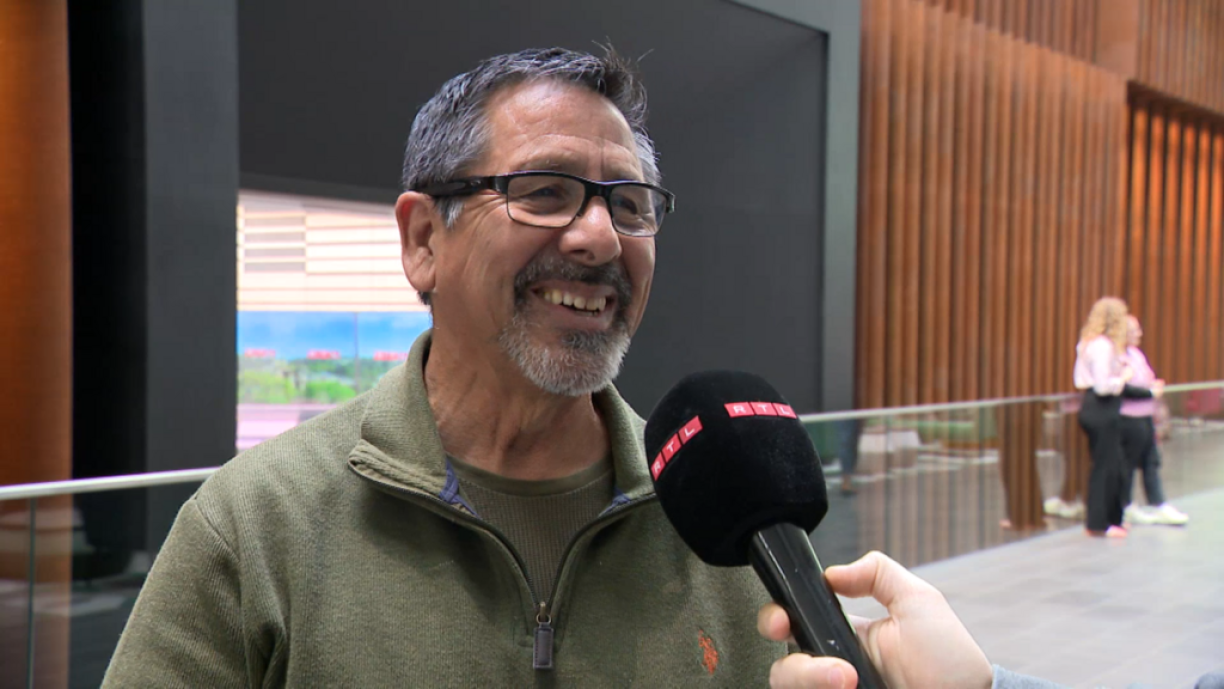
‘Republicans Overseas’ is a small group of US expats in Luxembourg, reflecting the general trend that Republicans are less likely to move overseas as is the case with Democrats, says William Abundes. The reason behind this: Democrats like the ‘socialist environment’ better than the Republicans.
The group aims to bring together Republicans in Luxembourg and develop political ideas that are then shared with others. Abundes does note that such political views are not met with a lot of enthusiasm in the Grand Duchy.
Cédric Ferry also spoke to a member of Democrats Abroad; read the full interview here.
The typical Republican is conservative by nature, meaning they prefer a small state that does not interfere too much in private affairs. The less government intervention, the better; too large a state apparatus is inefficient and expensive.
Republicans also hold the US Constitution very dearly, especially with regard the first two amendments. These enshrine the right to freedom of expression (including hate speech), and the right to bear arms. According to Abundes, these are God-given rights and therefore cannot be abolished by Man.
Editorial Note: Mr Abundes makes a number of statements in the rest of the interview that reflect his personal view. However, part of his claims were refuted in a series of fact checks, which have been flagged by asterisks.
William Abundes is optimistic about Donald Trump’s election victory on 5 November; he had already proven himself to be a capable president during his first term.
Some claim that the coronavirus pandemic, which began during Trump’s term of office, was planned. According to Abundes, it is suspicious that Anthony Fauci warned of a pandemic two years before Covid-19 and that the Moderna vaccine was approved two or three years before the pandemic emerged*. Should Trump win, he can continue his policies from his first term: reduce regulations.
According to the Republican representative, the key issue in this year’s election is the economy. The federal government is currently spending too much money, including on the war in Ukraine, which is contributing to high inflation. Prices are too high at the moment, be it for petrol, food, or anything else.
Immigration is also causing high government spending. For instance, the Federal Emergency Management Agency (FEMA) was unable to respond properly to the hurricanes in Florida and in Georgia as its funds are tied to supporting illegal immigrants.**
As far as transatlantic relations are concerned, President Trump undoubtedly would bring and end to the war in Ukraine in one way or another. The conflict should have been resolved differently from the outset, Ukraine should be persuaded to hand over part of its territory to Russia in the short term. Instead, there has been a loss of life and material damage on a scale that cannot be repaired within the next ten to fifteen years.
Abundes notes that negotiations had indeed taken place in the early stages, however, the Ukrainian diplomat who had signed the peace agreement with Russia ‘somehow’ was killed on his way home.***
Besides, Abundes is not too sure whether Putin is as bad as he is portrayed in Europe. He adds that Russia even tried to join the alliance, but was rejected.****
The Republican believes that the Democratic Party has become too extreme, that they had taken it too far with abortion. If a child is healthy and viable, we are no longer talking about abortion, but euthanasia. That is where the Democrats are headed, he worries. Abundes brings in Denmark, commenting that euthanasia was legal there for a while, but in the meantime has been decided against.*****
In general, democracy has become too extreme, they’re heading ‘off a cliff’, dragging many Republican government officials along. Tim Walz is a communist in essence – citing his long-term stay in China – and Kamala Harris, whose father was a Marxist economist, also raises some doubts. It’s not a direction to go into, Abundes comments.
Should Harris become president, Abundes hopes that the US will do the right thing in the world, that the right decisions will be made. But he does not seem too optimistic about positive change.
*In 2020, Moderna announced that it was working on a Covid-19 vaccine with the US National Institute of Health. Although the virus did not yet have an official name at the time, this does not prove that the pandemic was planned. Reuters debunks this in more detail in this fact checking article.
** The claim that FEMA has no money to take care of hurricane victims because all resources are spent on illegal migrants has been refuted in various fact checks, including by Deutsche Welle and NPR.
https://www.dw.com/en/fact-check-viral-claims-in-the-wake-of-the-hurricane-helene-disaster/a-70433338
*** There is no evidence that a peace treaty was signed between Ukraine and Russia at the beginning of the war; the negotiations based on the Istanbul Agreement of 29 March 2022 came to an end without an agreement being signed. Experts see the reasons behind this on the one hand in Russia’s refusal to negotiate the status of Crimea under international law. On the other hand, Ukraine’s Western allies did not exert enough pressure to support the process. The negotiations were formally broken off after the conquest of Mariupol on 19 May 2022, with the civilian victims of the massacres in Irpin and Butsha being cited as justification.
**** Indeed, Vladimir Putin showed interest in joining NATO in 2000, as former NATO Secretary General George Robertson announced at the time. However, Russia never submitted an official application to join the alliance, given that Putin demanded that Russia be invited to join NATO. When Robertson replied that accession was only possible via the official procedure, Putin stated that Russia would not join the end of a ‘queue of unimportant countries’.
***** Although the topic of euthanasia is continuously discussed in Denmark, active euthanasia remains illegal. However, passive euthanasia - in which doctors stop measures that prolong life if the patient so wishes - has been legal since 1992.